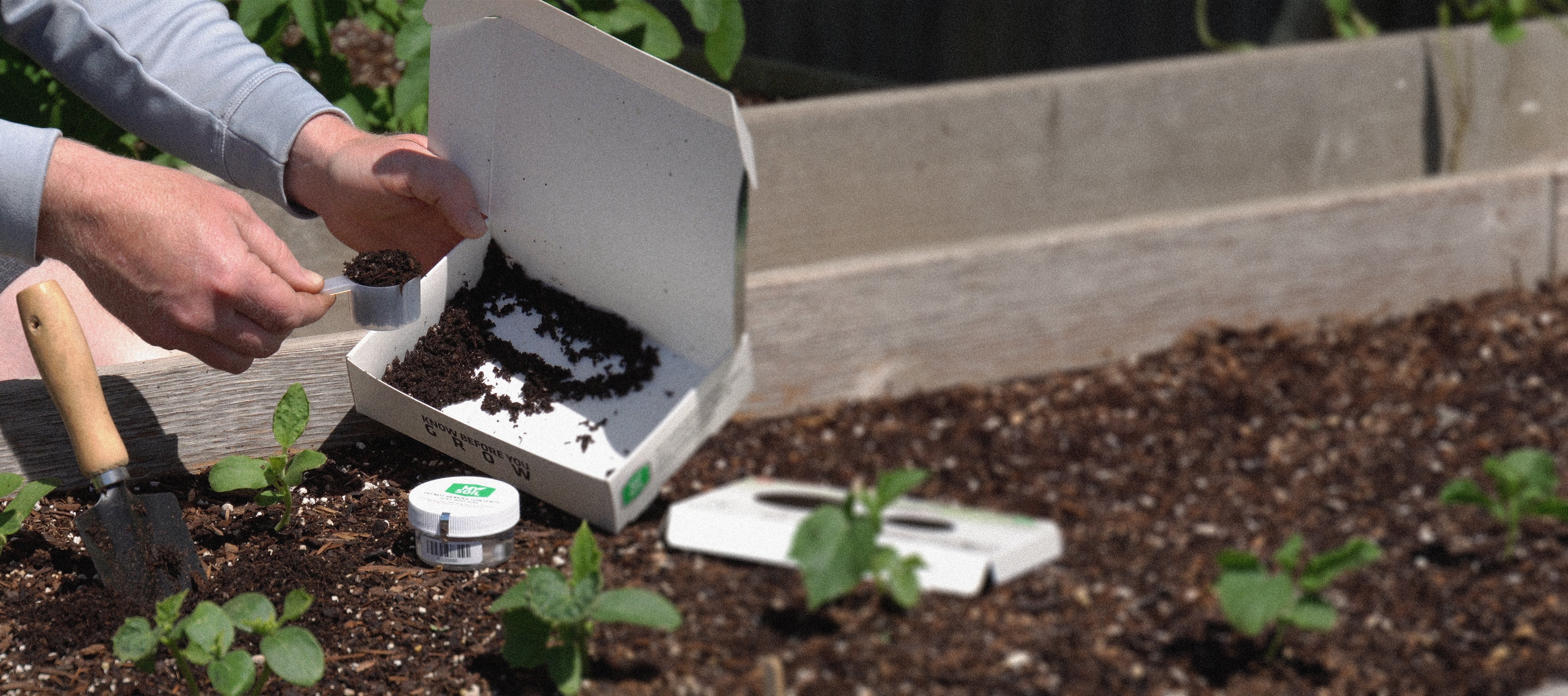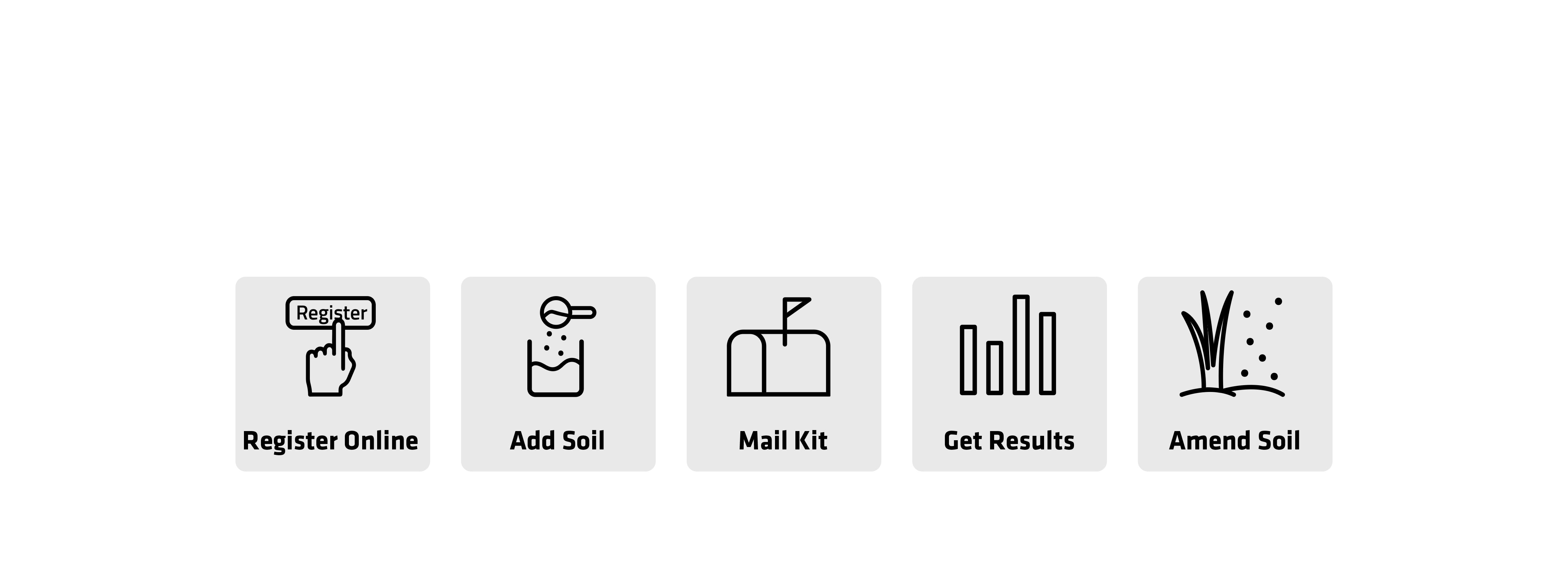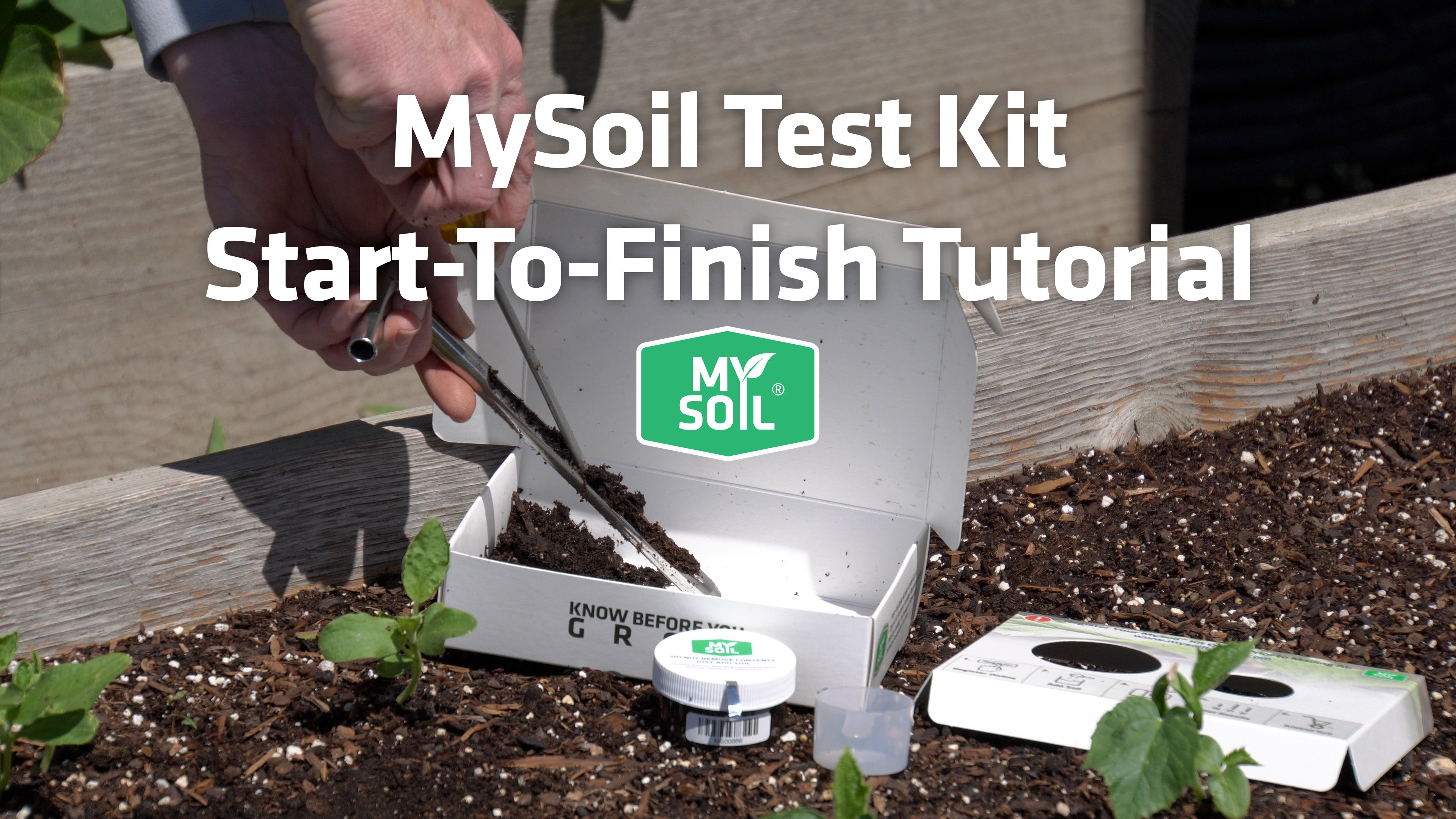
Build Soil Health & Quality
It's simple! Build soil to yield the highest quality lawn and garden. Follow these easy steps!
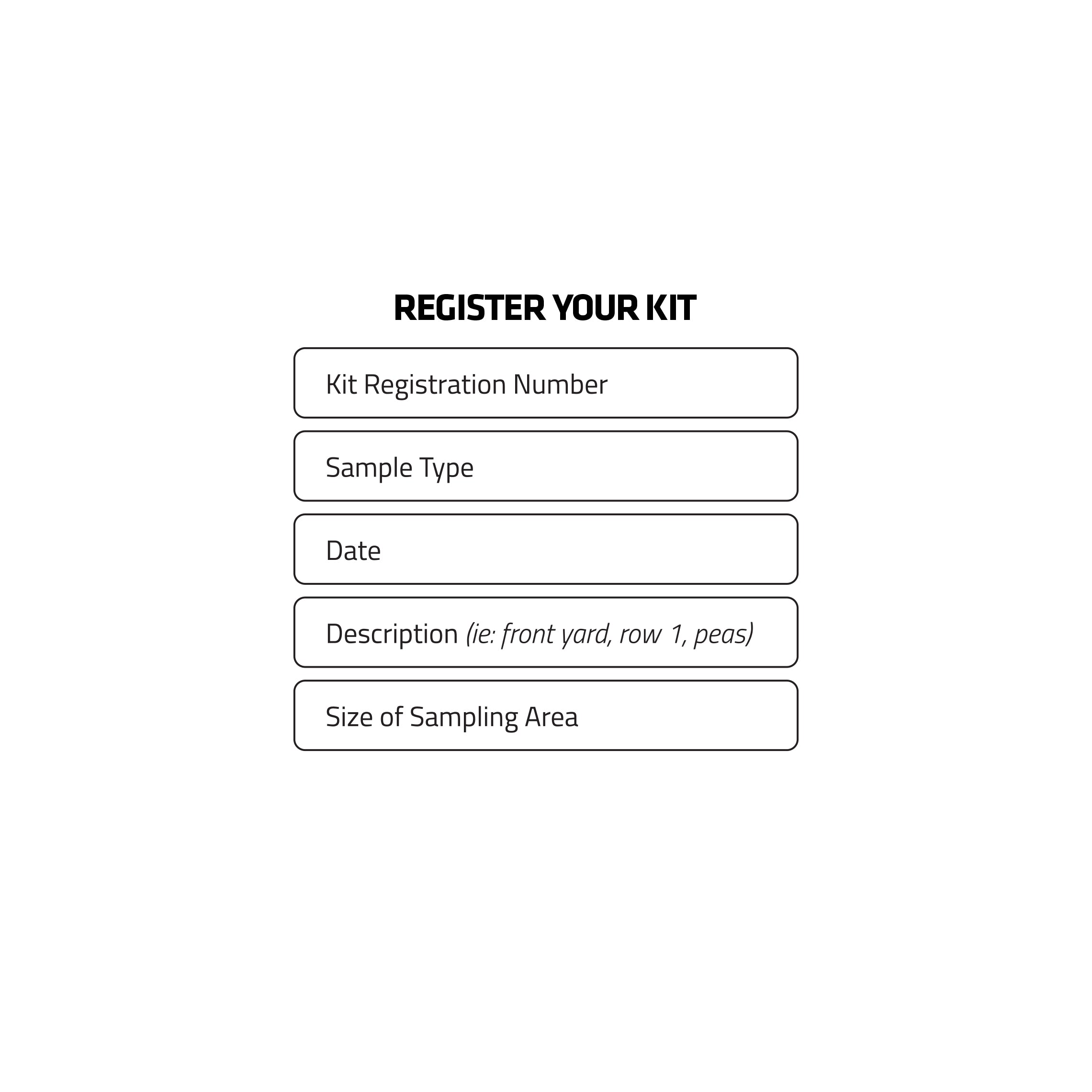
1. Register Your Kit
Using the MySoil reporting interface, enter the appropriate information regarding your soil sample.
Enter your kit registration number. (Found on sample jar and paper insert.) Select the sample type: lawn, veg. garden, orn. garden, or trees Add the date of when your soil was added to the sample jar. Add an additional description of your sampling location for your reference. Select the approximate size (square feet) of your sampling area. (This is done by multiplying the length of the area by the width)
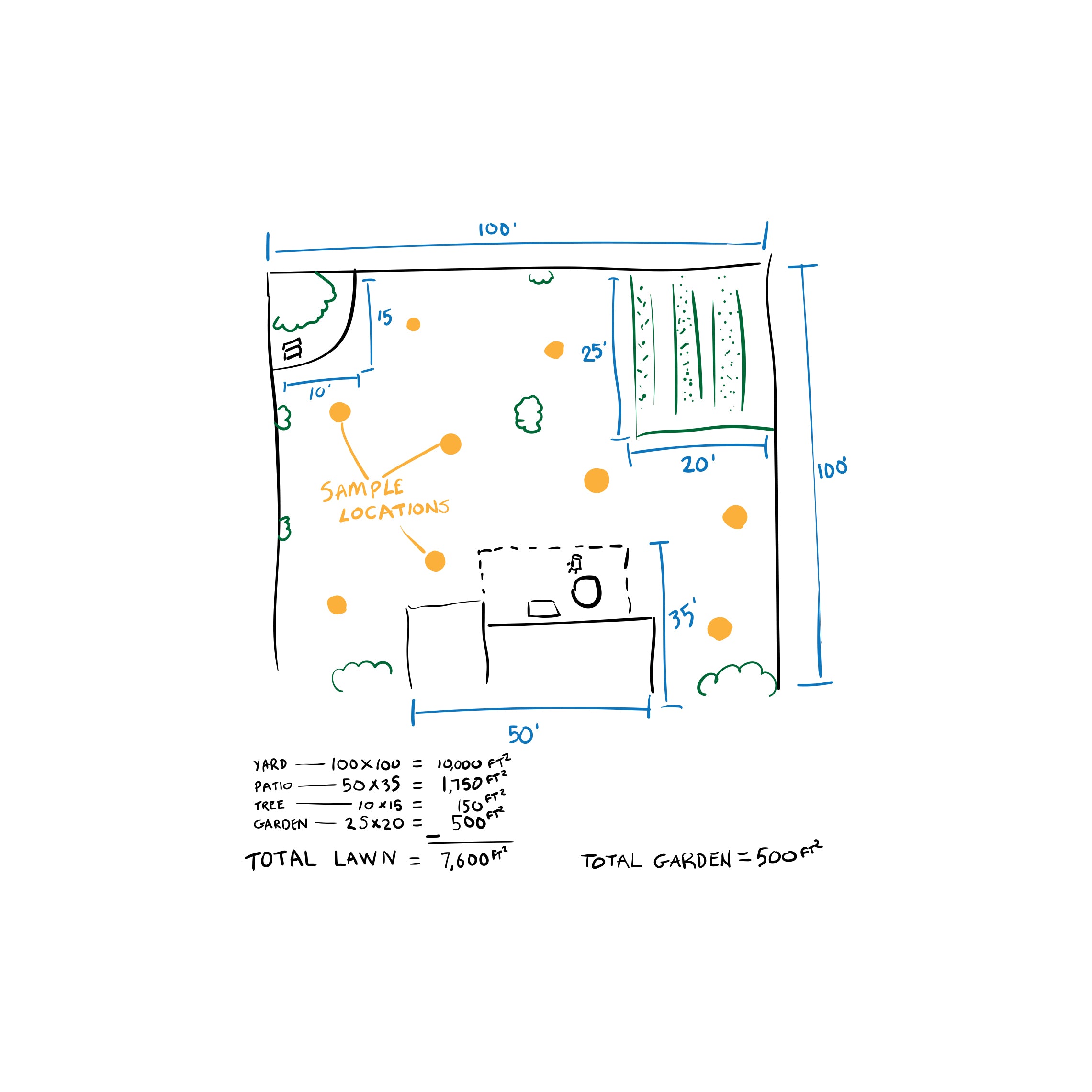
2. Add Soil
An accurate soil sample provides accurate analysis. Before taking your soil sample, it’s best to evaluate your testing area and divide it into different sections if needed. For example, the sketch shown is a homeowner’s backyard that wishes to collect samples for both a yard and garden. This example consists of a 7,600-square-foot lawn and a 500-square-foot garden.
It is important to collect a representative soil sample. If multiple sample areas are being tested, we recommend separate tests for each area.
For each test, we recommend:
1. Using a clean soil probe, hori-hori, or hand trowel, collect soil from 5-7 separate spots within your desired testing area.
2. The soil should be collected from the surface down to a depth of 6 inches (0-6”). (A shallower depth is ok if the soil is too hard)
3. Place the soil in the MySoil box, clean plastic bag, or bucket.
4. Composite the collected soil by mixing thoroughly and breaking up any large chunks. (Samples should be free of any large plant material and rocks.
5. Using the provided scoop, collect one level scoop of the mixed soil and add it to the jar containing DI water and nutrient adsorbing capsule. Tightly secure lid!! DO NOT DUMP WATER OUT OF JAR
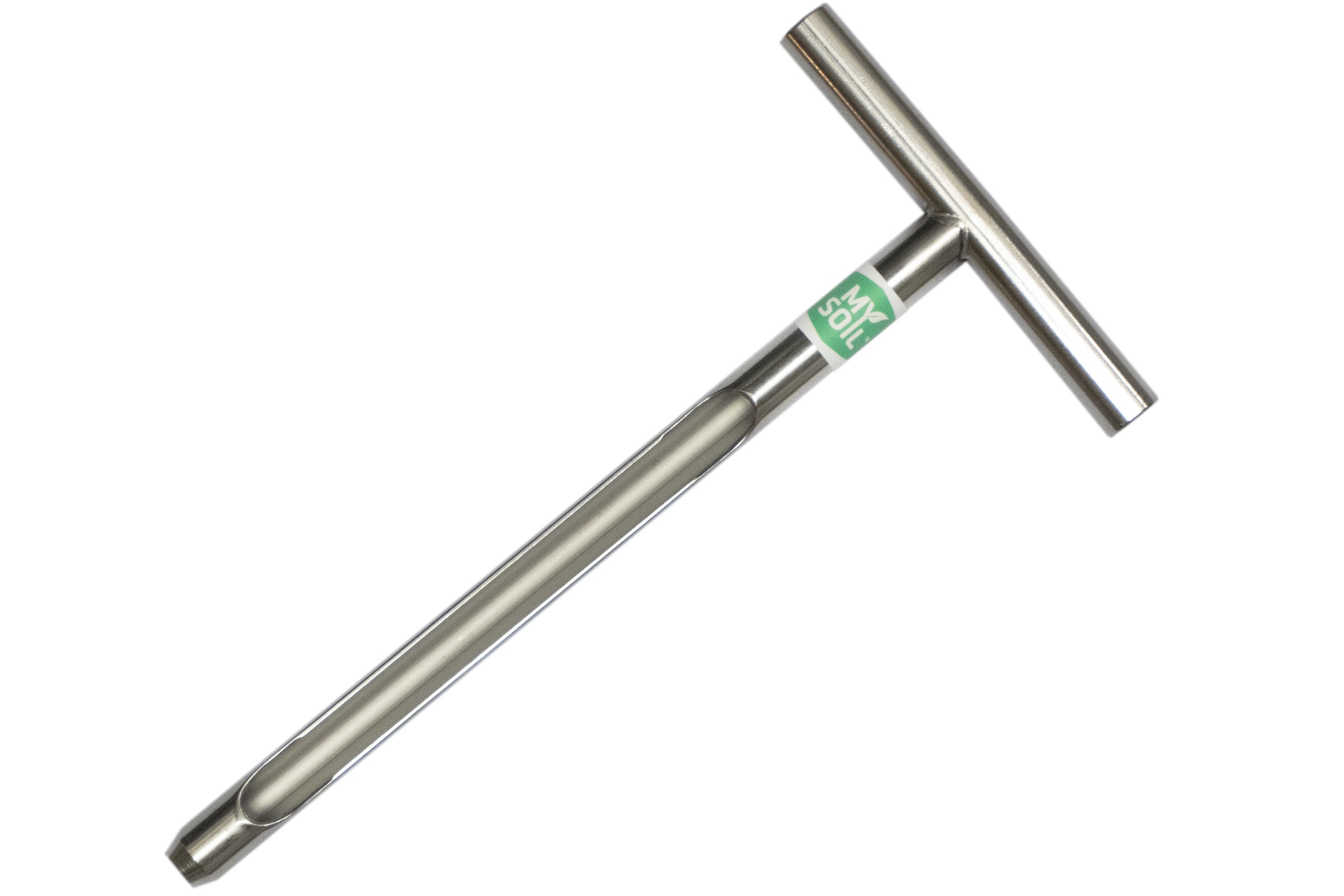
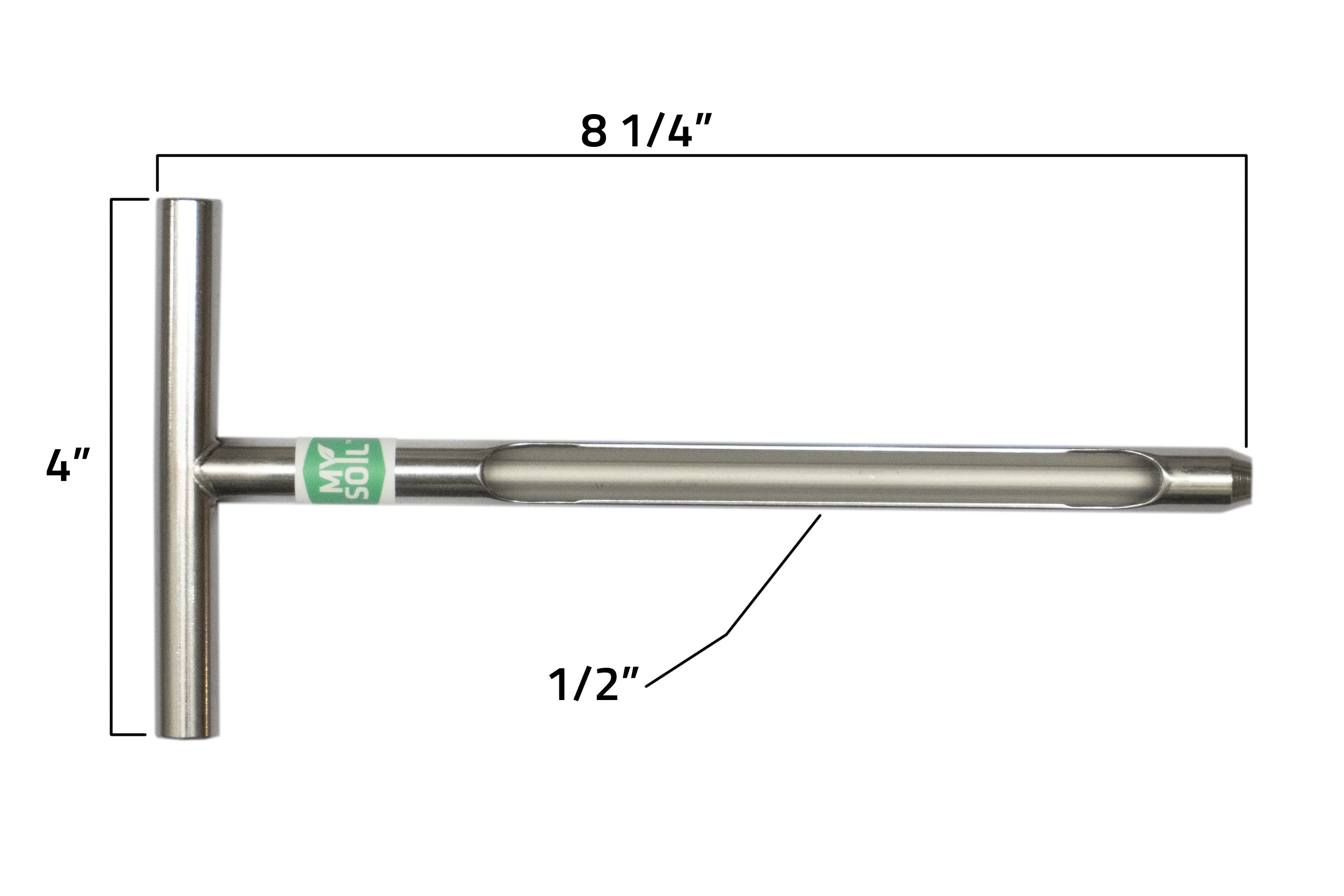
DIY Soil Probe
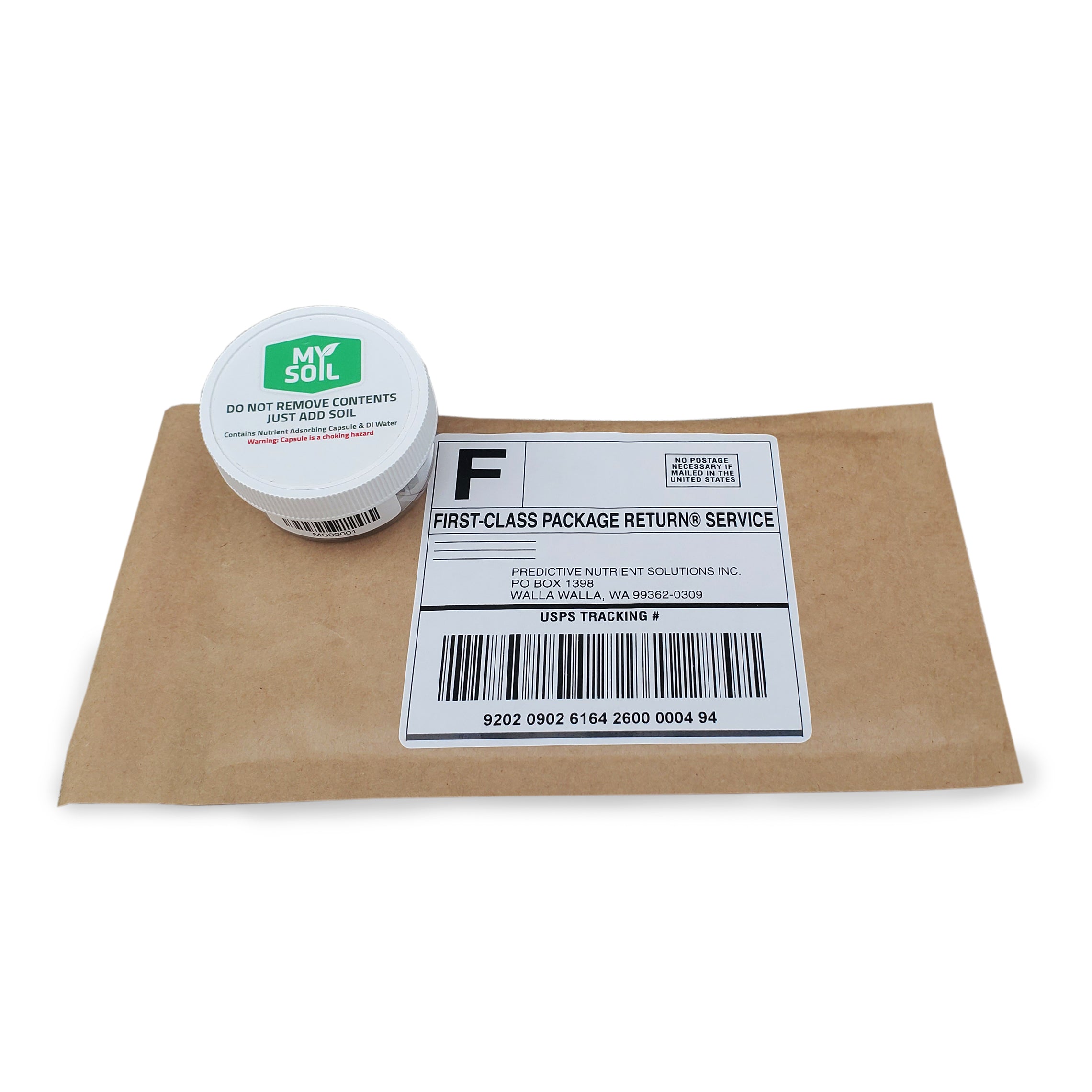
3. Mail Sample
Seal the prepaid envelope and drop in your mailbox or any USPS accepted location. Results will be available on the MySoil web app within 6-8 business days.
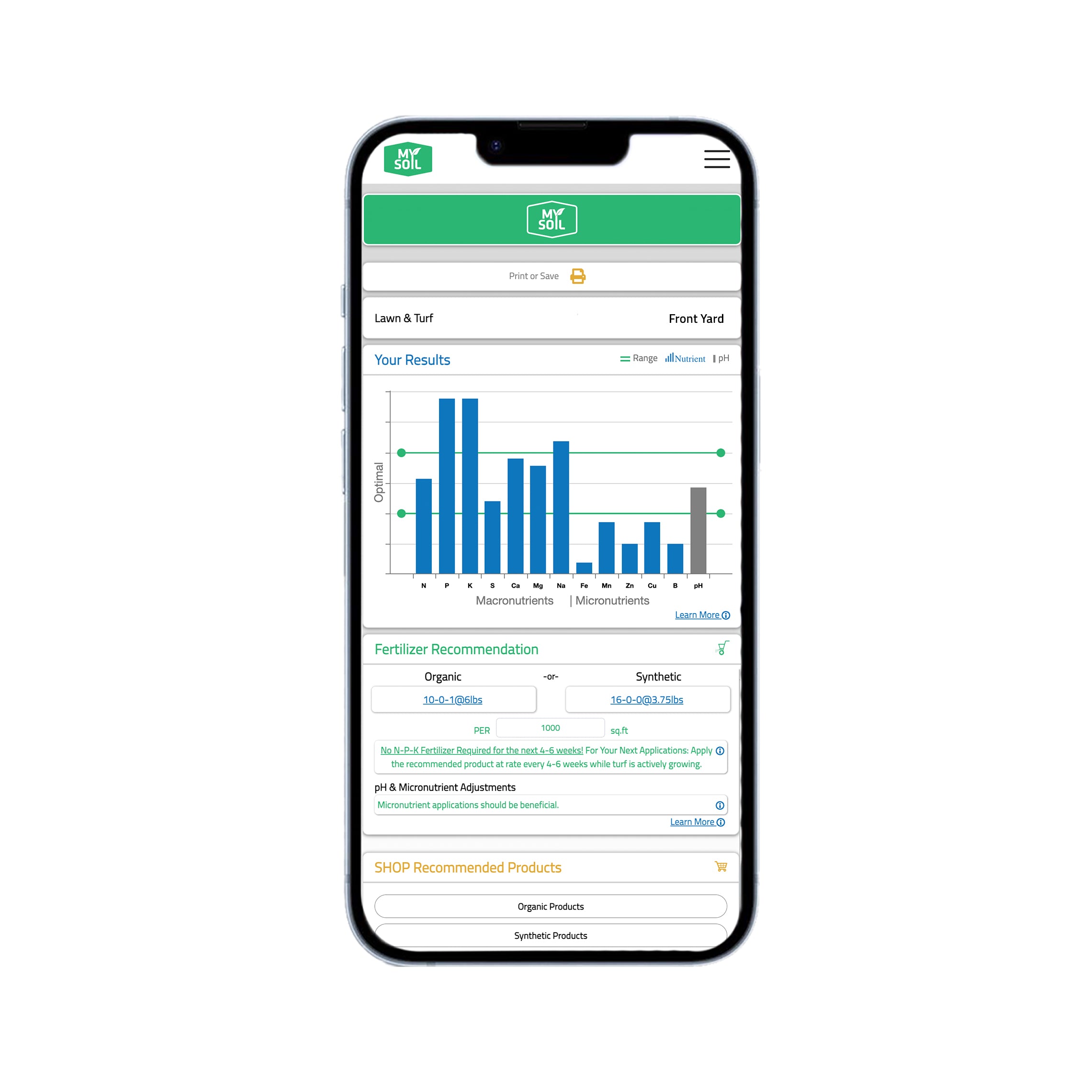
4. Get Results
Status update links will be emailed. Sign in to your customer portal and view your report(s) in your dashboard. The MySoil report provides you with the most accurate analysis within the industry. Confidently manage your soil's productivity and promote sustainable practices.
Sample Results
This bar graph offers a quick overview of your soil analysis, highlighting nutrient levels and pH in relation to their optimal ranges.
Fertilizer Recommendation
Precise fertilizer recommendations are provided to enhance soil productivity, restore nutrient capacity, and support nutrient-dense, resilient plant growth.
Shop Products
To ensure your success, shop vetted brands and soil products that match your fertilizer recommendation, with delivery right to your door.
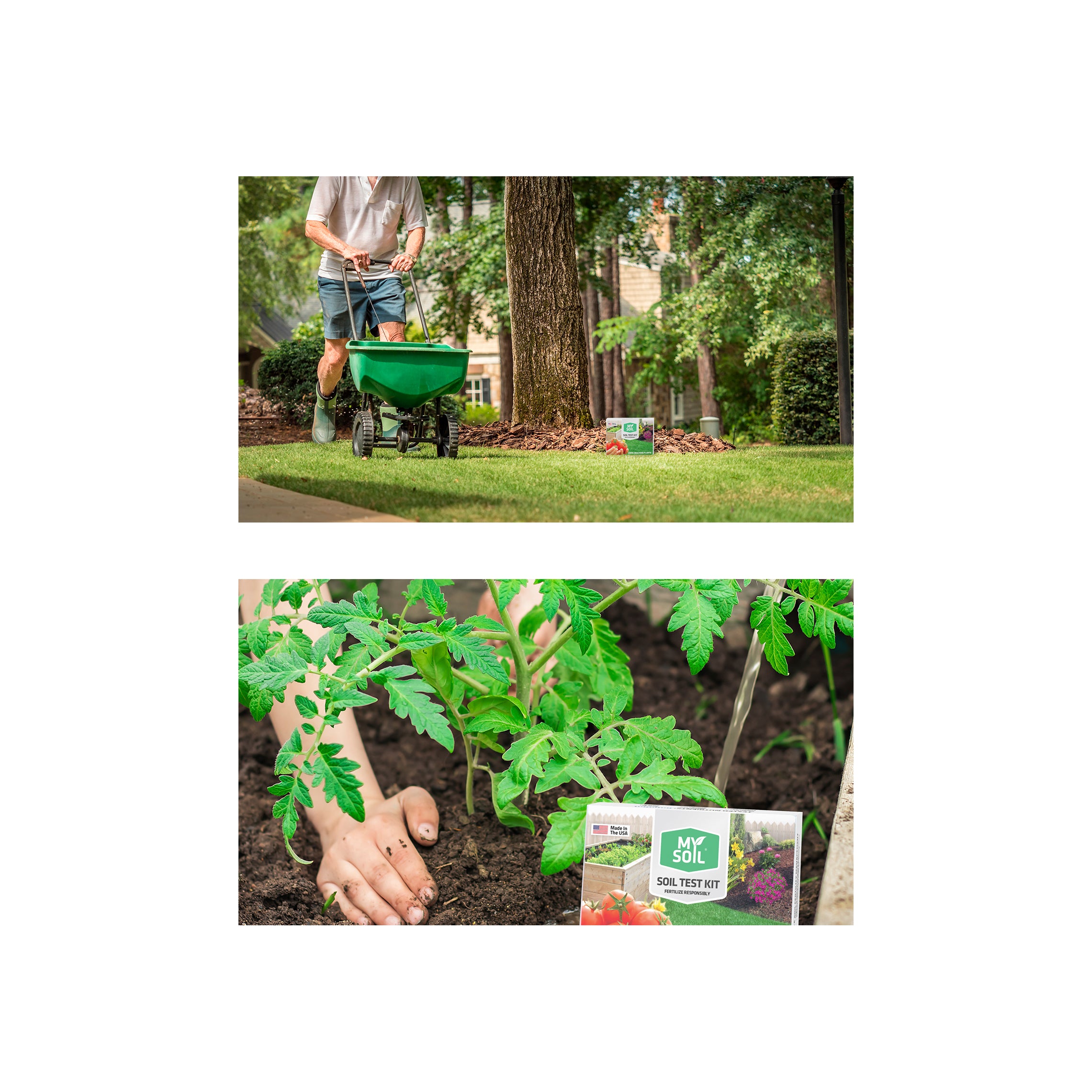
5. Amend Soil
Lawn Application
In the example above found in section 2 "Add Soil", the homeowner has a yard size of 7,600 sq. ft. Their sample results required fertilizer to be applied at 2.4lbs per 1000 sq. ft. If we multiply 2.4lbs by 7.6 our homeowner requires 18.24lbs of fertilizer to be applied evenly over the yard.
Garden Application
In the example above found in section 2 "Add Soil", the homeowner has a garden size of 500 sq. ft. Their sample results require fertilizer to be applied at 1.0lbs per 100 sq. ft. If we multiply 1.0lbs by 5.0 our homeowner requires 5.0lbs of fertilizer to be applied evenly over the garden.
